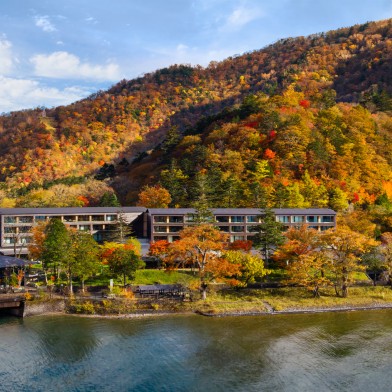The residential property market is a favourite subject of both the New Zealand media and the New Zealand public. We’re fascinated by house prices, capital gains, landlord/tenant relationships, and the latest governmental effort to make things affordable.
Across the Pacific in Asia, the property market is equally fascinating. Here are three areas in the region to pique your interest this month. All of them are following the same trend as New Zealand - that is, house prices just keep on going up.
Singapore
What’s happening: Property prices are expected to rise by four percent this year with vaccine confidence and economic recovery, as well as Singapore moving past the worst of Covid-19. In November 2020, Business Times called it a “safe haven” amid the pandemic in the global property market.
Singapore’s HDB (Housing Development Board) is largely credited with supporting the country’s overall “economic, social, and political stability”, according to the OECD report Under Pressure: The Squeezed Middle Class. The notion that “housing has been the main drive of rising middle-class expenditure” won’t sound unfamiliar to Kiwis.
Yet no major metropolitan area in the high-income world faces a housing affordability issue quite like Singapore. According to the Demographia International Housing Survey 2020, Singapore lacks the “supply vent” of low-cost suburban or exurban (commuter) land that “moderates house prices across an urban area”. While Singapore’s public housing (via HDB) is able to somewhat keep house prices stable, in the private market all bets are off according to The New York Times. During the pandemic, private home prices in Singapore have increased by 2.2 percent, whilst private condominium developers sold 1217 new executive apartments last month – a 57.2 percent jump from the previous month.
Average house price: S$2,080,533 (NZD $2.18 million)
China
What’s happening: China is the one country in the world to see positive economic growth in the Covid era. Property prices, too, have been seeing a small uptick in China’s biggest cities. Demand for housing in competitive school districts (sound familiar, Aucklanders?) continues to heat up the market.
In December 2020, prices across Beijing, Guangzhou, Shanghai, and Shenzhen grew in aggregate by 0.3 percent over November. Nikkei Asia believes scarce educational resources drive price increases for previously occupied homes in the biggest Chinese cities. “In China, living close to a school is sometimes a prerequisite to attend it, which can drive up property prices around the most competitive institutions,” the website reported this week. It is suggested demand for houses in so-called “good school districts” has been driven up by the Covid-19 pandemic, where many parents were forced to cancel plans for their children to study overseas.
Shanghai is particularly hot right now. In 2020 the city reached a four-year high in property transaction volumes - so regulators are stepping in. On 22 January, the Shanghai Housing Authority imposed strict controls on banks to address the growth rate of individual mortgages, and prevent rushed lending and the funnelling of other loans (e.g. business loans) into the real estate market. Shanghai has also cracked down on various loopholes that are common in China to beat limits on homeownership, such as “sham divorces”, where couples go through a fake divorce so one person can take advantage of first-home buyer privileges and buy an extra property.
Average house price (Shanghai within Inner Ring Road): 4.5 million yuan (NZD $966,000)
South Korea
What’s happening: Seoul’s housing market remains overheated too, despite the pandemic. Like that of New Zealand, property news in Korea makes daily headlines and has done for years, thanks in part to national interest in real estate fuelled by property TV shows. Lee Chang-woo, producer of the hit show “There Is No House For Us In Seoul”, says lockdown life has been a major contributor to his show’s ratings and subsequent interest in buying or renovating property. “As people spend more time at home due to the pandemic, they now pay more attention to the place they live in,” he told Korea Joongang Daily.
Total sales transactions in South Korea surpassed the 300-trillion wan mark (NZD $378 billion) for the first time in history at the end of 2020, according to property platform Zigbang. Of this, 282.2 trillion wan went to high-rise apartments while the rest went to family homes. This is the fastest rate of rises in nine years.
Ham Young-jin, chief of big data at Zigbang, says, “The property market boomed last year thanks to lowered interest rates, as part of the Government’s measures for economic recovery,” referring to the Korean state’s efforts to see the country through its pandemic woes.
Government measures to curb Korea’s house prices – such as a mandate to increase the difficulty of the property investment process in the Seoul Metropolitan region - haven’t worked and are fanning public discontent. This is because one such measure (increasing the price of two-year rentals that require a lump-sum deposit instead of monthly rent, called “jeonse” houses) has only driven more of a supply shortage and thus increased demand. High liquidity (the ability to meet short-term debts) which has been funnelled into the housing market is credited as another reason for Korea’s housing market surge, which real estate commentators believe will continue throughout 2021.
Average house price: 701.3 million won (NZD $883,523)
- Asia Media Centre
